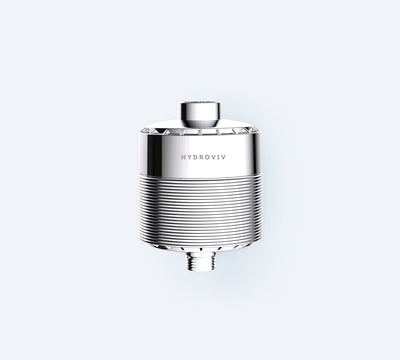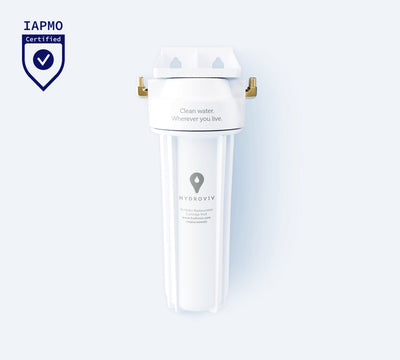Problems We Found In Jacksonville, Florida Drinking Water
RSS
Analies Dyjak, M.A. | Policy Analyst
**Updated July 2, 2021 to include latest data**
The Jacksonville Electric Authority (JEA) delivers more than 110 million gallons of water each day to most of Duval County, parts of St. Johns County, and Yulee in Nassau County. JEA draws water from the Floridan Aquifer, about 1,000 feet below the Earth’s surface. We aggregated water quality test data from JEA, the U.S. Environmental Protection Agency (EPA), the Environmental Working Group, and the US Geological Survey. The custom water filters that we build for our customers in the Jacksonville area are optimized with this research in mind.
Lead In Jacksonville’s Drinking Water
Lead contamination in tap water is different from most pollutants, as lead comes from plumbing, not the water supply. 2020 lead sampling by JEA detected levels of 1.7 parts per billion at the municipal level. However, this does not necessarily represent the lead levels at the tap. EPA, CDC and the American Academy of Pediatrics all recognize that there is no safe level of lead for children. In addition, Federal regulations cannot take into account levels measured at an individual tap.
Arsenic in Jacksonville’s Drinking Water
Arsenic is a naturally occurring hazardous heavy metal that can cause cancer and other health problems. 2020 arsenic levels in JEA's Main Grid measured at 1.03 ppb. While Jacksonville’s arsenic levels were not in violation of EPA water quality standards, consumers should know that the U.S. EPA's standard balances toxicity against the costs of removing arsenic from drinking water. We strongly suggest that tap water with levels higher than 1 part per billion be treated to remove arsenic, especially in homes with children.
PFAS in Jacksonville’s Drinking Water
Per and Polyfluoroalkyl Substances (PFAS) are a category of emerging contaminants commonly used in firefighting foam, Teflon, non-stick surfaces, stain-resistant surfaces, and food packaging. The Agency for Toxic Substances and Disease Registry (ATSDR) has determined that PFAS exposure is associated with various adverse health effects, including an increased risk of cancer, lowered fertility rates, and developmental issues in infants and young children.
Municipal water systems are not currently required to test for PFAS. EWG did nationwide PFAS testing, and PFOS was detected in the groundwater and drinking water of military bases and airports near Jacksonville, including 3.9 parts per trillion (ppt) in the drinking water at Cecil Field Naval Air Station, and much higher levels of PFAS in the groundwater at the other nearby military installations. Not all water filters are designed to remove PFAS from tap water. If you'd like to find water filters that remove PFAS from tap water, check out this Duke/NC State PFAS study. Hydroviv filters are NSF/ANSI Standard 53 certified for PFOA/PFOS removal.
Disinfection Byproducts In Jacksonville’s Drinking Water
Disinfection Byproducts are a category of emerging contaminants that form when chlorine-based disinfectants (added to the water supply to protect consumers) react with naturally-occurring organic matter. EPA regulates two categories of DBPs: Total Trihalomethanes (TTHMs) and Haloacetic Acids (HAA5). The EPA has stated that disinfection byproducts have been associated with increased risk of bladder cancer, as well as kidney, liver, and central nervous system problems. Haloacetic Acid levels measured as high as 35.87 parts per billion, with the EPA Maximum Contaminant Level (MCL) at 60 parts per billion. Total Trihalomethane levels were reported as high as 141.46 parts per billion, which greatly exceeds the EPA MCL of 80 parts per billion.
How Can Hydroviv Help Me?
Hydroviv is a water filtration company that uses water quality data to optimize water filters for each customer's water. The contaminants that we list above are what we consider to be major “points of emphasis” that we use to build water filters that are built specifically for Jacksonville water, but all of our filters also include broad protection against a wide range of contaminants. Questions? Email hello@hydroviv.com.
Hydroviv's drinking water filters carry NSF certifications to Standard 42 (aesthetic effects--Chlorine Removal) and Standard 53 (health effects--Lead, VOCs, and PFOA/PFOS removal), and are independently tested to remove hundreds of contaminants.
Recommended Articles For You
Everything You Need To Know About PFAS Contamination in Tap Water
Problems We Found With Orlando, Florida Drinking Water
How does Lead Enter Drinking Water?




